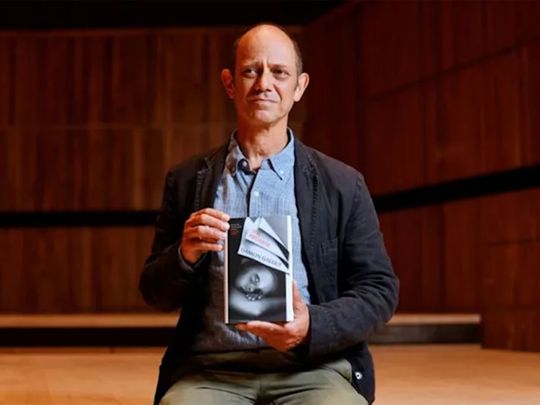
London: When South African writer Damon Galgut learned that his novel, "The Promise," was shortlisted for the Booker Prize, he was filled with anxiety. Galgut had been shortlisted twice before, in 2003 and 2010, and both times, the stress of the nominations "probably shaved a few years off my life."
This year was different. On Wednesday, the Booker judges pronounced Galgut the winner, praising his novel for its "unusual narrative style that balances Faulknerian exuberance with Nabokovian precision, pushes boundaries, and is a testament to the flourishing of the novel in the 21st century."
At the awards ceremony in London, when he was asked how it felt to be named the winner, Galgut, 57, appeared more stunned than happy. "You'd better ask me that tomorrow, because my nerves have kind of gone numb," he said. "I truly didn't expect to be standing here."
"The Promise," Galgut's ninth book, had already won acclaim among critics for its menacing and bleakly funny portrait of the Swart family, descendants of Dutch settlers who are desperately holding onto their farm and status in post-apartheid South Africa. Literary critics likened his experimental prose to modernist masters like Virginia Woolf, James Joyce and William Faulkner, while others noted his debt to fellow South African writer J.M. Coetzee.
He set the novel in Pretoria, where he grew up, in part to explore the region's dark history of apartheid and racial violence and the impact that had on his childhood.
"The Promise" was one of six shortlisted novels and stood out for its artistry and scope, judges said.
American authors once again dominated the shortlist this year, accounting for three of the finalists. They were Richard Powers for "Bewilderment," Maggie Shipstead for "Great Circle," and Patricia Lockwood for "No One Is Talking About This."
The other authors were Sri Lankan writer Anuk Arudpragasam for "A Passage North," about the lingering trauma from his country's civil war, and British and Somali novelist Nadifa Mohamed for "The Fortune Men," about a Somali man falsely accused of murder in Wales.
The Booker Prize is awarded annually to the best novel written in English and published in Britain or Ireland, and was selected this year from 158 submitted novels.








